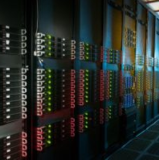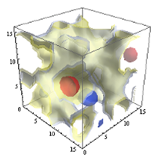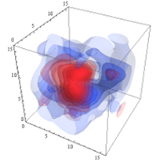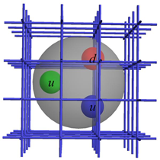High-Energy Physics Computing Traineeship for Lattice Gauge Theory (LGT4HEP)

About
Computing plays an increasingly important role in pushing the boundaries of our ability to understand high-energy physics. Within computational science, lattice field theory has been an essential driving force in high-performance computing since the 1980s and will continue to push the boundaries of computing in the 21st century. There is an urgent need to develop the workforce in computational lattice field theory, particularly with the imminent availability of exascale computing and the emergence of new computing architectures. Underrepresentation of minority groups in physics is even more acute in this area, a situation the proposed traineeships will help improve in the near future.
Traineeship Managers
University investigators:
Huey-Wen Lin, Michigan State University (Principal Investigator); Alexei Bazavov, Michigan State University; Thomas Blum, University of Connecticut; Zohreh Davoudi, University of Maryland College Park; William Detmold, Massachusetts Institute of Technology; Aida X. El-Khadra, University of Illinois Urbana-Champaign; Ethan Neil, University of Colorado Boulder (co-Investigators).
Labs investigators:
Andreas Kronfeld, Fermilab; Chulwoo Jung, BNL (co-Investigators); Peter Boyle, BNL (collaborator)
More Details
This traineeship program will involve multiple institutions within the nationwide USQCD Collaboration and leverages existing USQCD resources and collaborative networks. Training will be performed within the partnership institutions, focusing on hands-on programming experience. Students from high-energy physics, computational science, and related fields will be able to take dedicated computing courses to obtain a rigorous, broad, and deep understanding of these topics and gain valuable hands-on experience. The program has the following key objectives:
Curriculum:
Students will learn about computing technologies in hardware-software co-design, collaborative software infrastructure, and high-performance software and algorithms. Non-research skills, such as project management and scientific communication will be covered.
Hands-on high-performance computing training:
Following coursework, students will be paired with research mentors at national laboratories or DOE-supported facilities, where they will be able to apply their skills to a research project and access state-of-the-art supercomputers.
The program coursework will be assessed by independent review of course materials and a panel to assess student progress and program outcomes. The overall effectiveness of the program will also be assessed using intake and exit surveys by students. Lattice field theory is becoming increasingly important in enabling potential high-impact discoveries in high-energy physics, and there continues to be a need for large-scale state-of-the-art computation in many aspects of research. Therefore, a dedicated traineeship program like the one proposed here will accelerate the development of the next generation of computationally-savvy workforce in high-energy physics.
Sponsors
This traineeship is sponsored by DOE HEP Computing traineeship.





